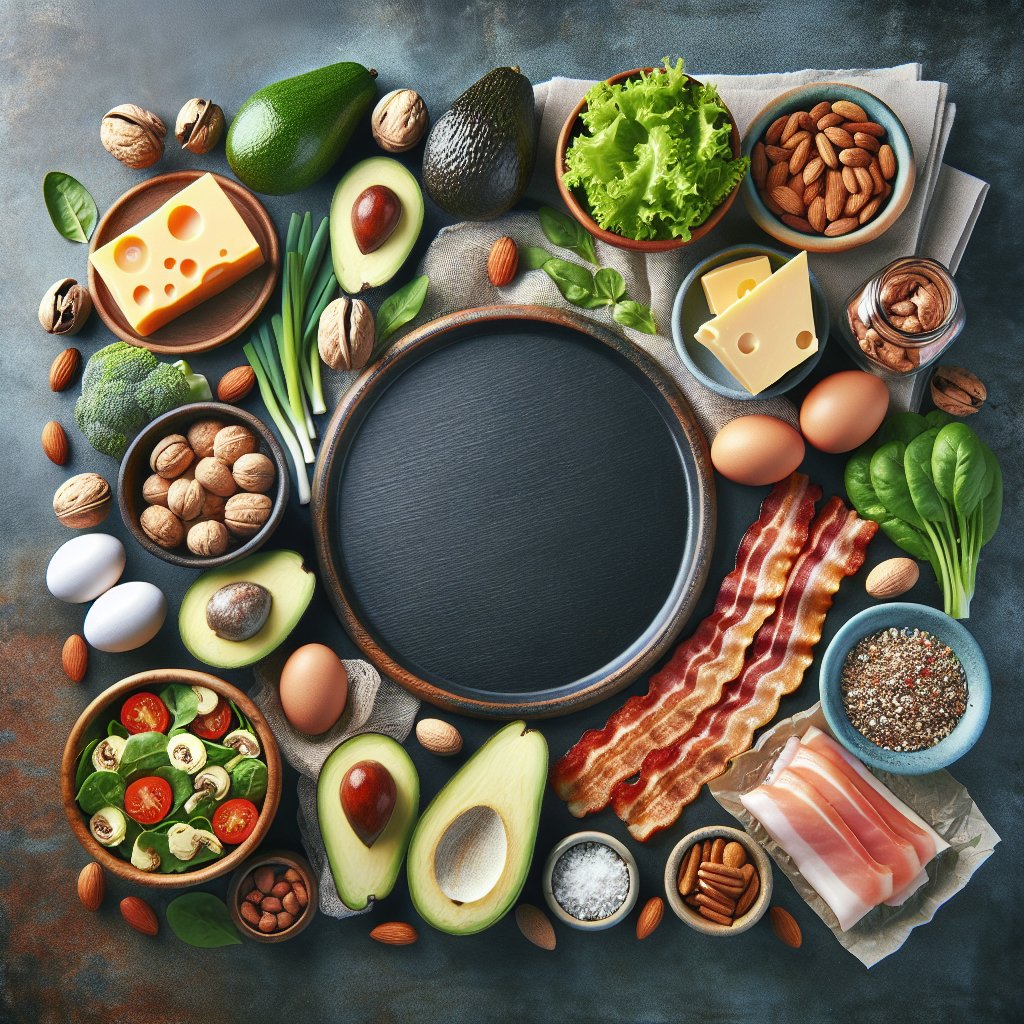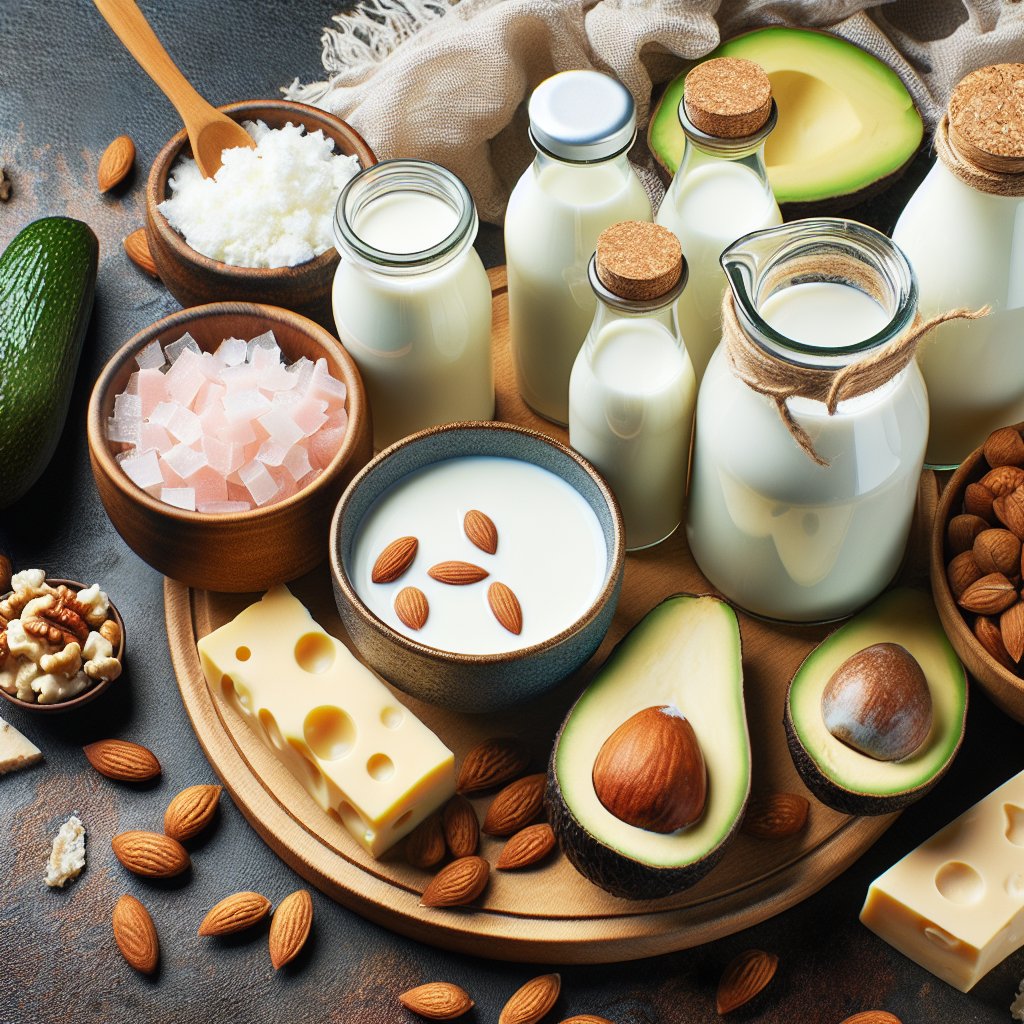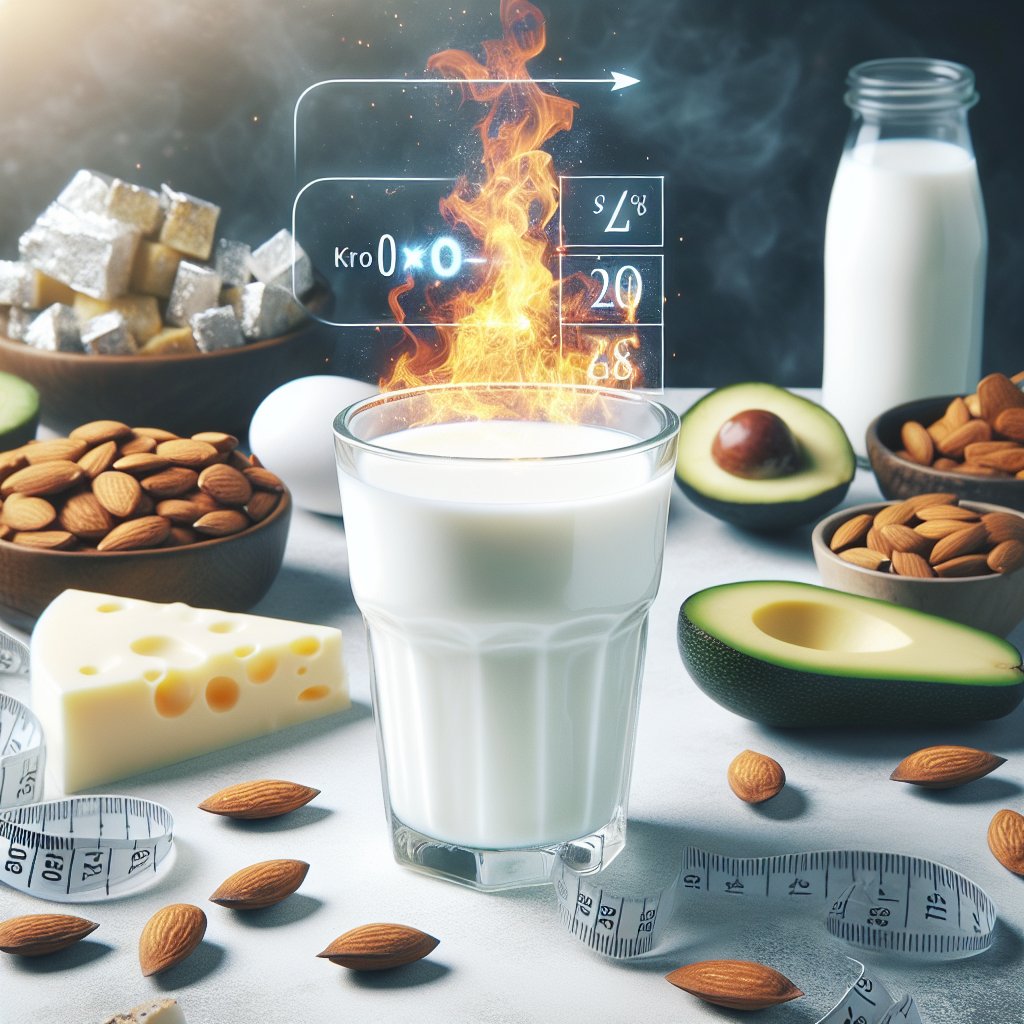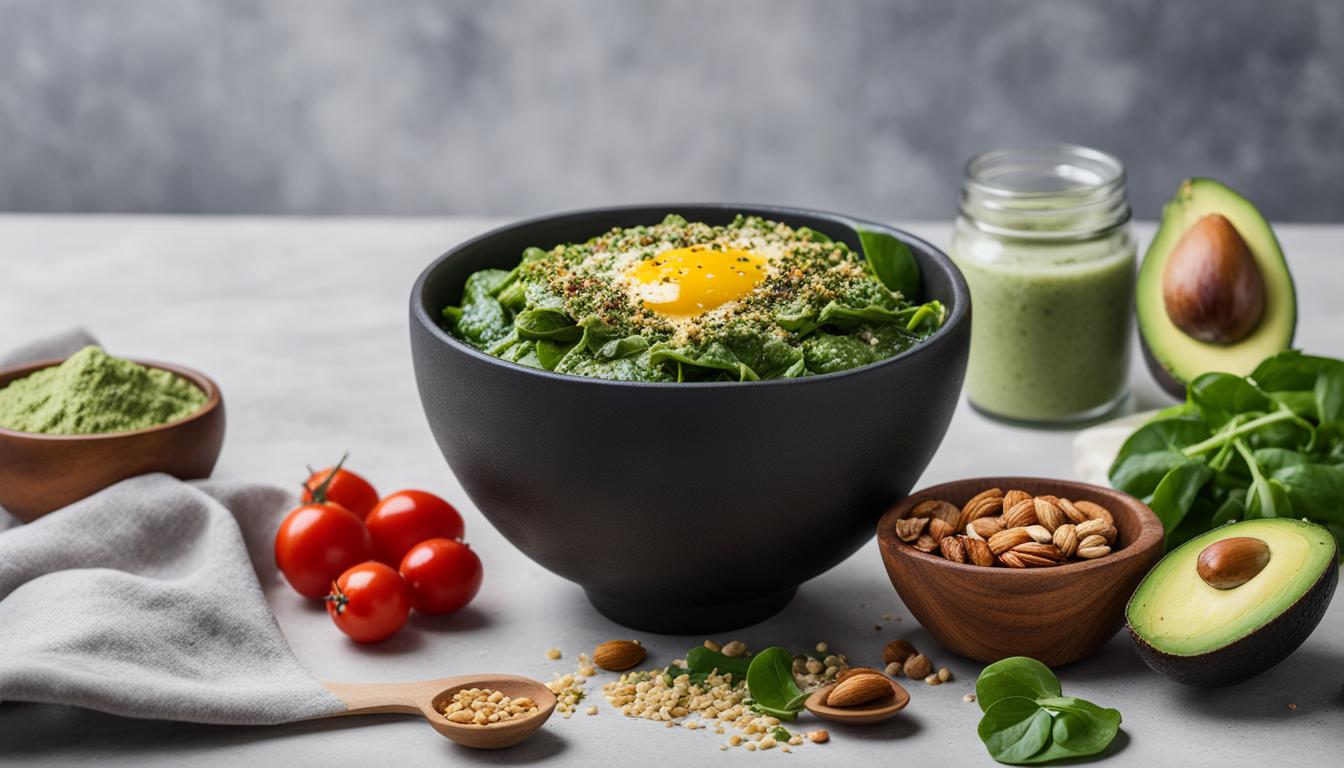Can You Drink Milk on a Keto Diet? Exploring the Surprising Truth About Milk and Ketosis!
Exploring the Popularity of the Keto Diet
Hey there, keto enthusiasts! Have you ever wondered why the keto diet has taken the health and wellness world by storm? It seems like everywhere you turn, someone is raving about the incredible benefits they’ve experienced from following this low-carb, high-fat eating plan. Well, the buzz is for good reason! The keto diet has been making waves not only for its potential to support weight loss, but also for its reported effects on energy levels, mental clarity, and overall well-being.
So, what exactly is it about the keto diet that has everyone talking? One key factor is its ability to shift the body into a metabolic state called ketosis. This is where the magic happens! When you restrict your carbohydrate intake and increase the consumption of healthy fats, your body begins to burn fat for fuel instead of relying on glucose from carbs.
Understanding the Importance of Knowing Which Foods Are Allowed
Now, jumping on the keto bandwagon isn’t just about slashing carbs and loading up on fats. It’s crucial to understand the specific foods that are permitted on the keto diet. After all, the key to success lies in getting your body into that coveted state of ketosis, and that means being mindful of the foods you consume.
When it comes to the keto diet, not all foods are created equal. The focus is on whole, nutrient-dense foods like avocados, nuts and seeds, fatty fish, and low-carb vegetables. These help to keep your carb intake low while providing essential nutrients and healthy fats that support your overall health.

What is a Keto Diet?
So, you’ve heard about the keto diet, but you might still have some lingering questions about what it’s all about. Well, let’s break it down! The keto diet is a high-fat, low-carb eating plan that’s designed to induce a state of ketosis in the body. Ketosis is a metabolic state where your body becomes incredibly efficient at burning fat for energy. When you restrict your carbohydrate intake, your body starts producing ketones in the liver, which are used as energy. This shift in metabolism is what makes the keto diet so effective for weight loss and overall health improvement.
The primary goal of the keto diet is to drastically reduce carbohydrate intake and replace it with fat. This means that your meals will typically include plenty of healthy fats such as avocados, nuts, seeds, and oils, while also incorporating moderate amounts of protein. By reducing carbohydrates and increasing fat consumption, you’re essentially re-training your body to rely on fat for fuel, leading to weight loss and numerous other health benefits.
The keto diet has been studied extensively, and research has shown its effectiveness in not only weight loss but also in managing conditions like type 2 diabetes, epilepsy, and even certain neurological disorders. Plus, many individuals on the keto diet report increased energy levels, improved mental focus, and reduced inflammation. So, it’s no wonder that the keto lifestyle has gained so much popularity!
Now that we’ve got a solid grasp on what the keto diet is all about, let’s dive deeper into a specific aspect of keto nutrition – the burning question: Can You Drink Milk on a Keto Diet? You might be surprised at what the truth holds when it comes to milk and ketosis. So, if you’re a milk lover or simply curious about the role of milk in a keto diet, keep reading to find out more!
[Word count: 299]
Benefits of a Keto Diet
Are you curious about the potential benefits of a keto diet? Let’s dive in and explore the amazing advantages that this lifestyle can offer!
Weight Loss
One of the most well-known benefits of a keto diet is its potential to aid in weight loss. Research published in the International Journal of Environmental Research and Public Health indicates that a keto diet can be effective for weight loss due to its ability to reduce appetite and increase fat burning. By restricting carbohydrates and increasing healthy fats and protein, the body enters a state of ketosis, where it efficiently burns fat for fuel, leading to weight loss.
Improved Blood Sugar Control
Individuals with diabetes or those at risk of developing diabetes may find the keto diet particularly beneficial for improving blood sugar control. According to a study in the Journal of Medical Internet Research, the keto diet can lead to significant improvements in HbA1c levels, a key indicator of long-term blood sugar control. By minimizing carb intake and moderating blood sugar levels, the keto diet shows promise in managing diabetes and promoting overall health.
Increased Energy Levels
Do you often feel drained by midday? The keto diet may help address this. A study in the Journal of Nutrition & Metabolism suggests that the keto diet could lead to increased energy levels and improved physical endurance. By utilizing fat as the primary source of energy, the body can experience more sustained energy levels throughout the day, reducing the energy crashes commonly associated with fluctuating blood sugar levels from carb-heavy diets.
With the potential benefits of weight loss, improved blood sugar control, and increased energy levels, it’s no wonder the keto diet has gained widespread popularity. The promising research offers hope for those seeking a sustainable and effective way to improve their overall well-being.
Exploring the Compatibility of Milk with a Keto Diet
One of the frequently asked questions on a keto diet is, “Can you drink milk?” Let’s delve into the compatibility of milk with a keto diet, considering its carb content and potential impact on ketosis.
When it comes to the keto diet, it’s crucial to keep a close eye on the carb content of foods and beverages. One cup of whole milk contains around 11-12 grams of carbohydrates, primarily in the form of lactose, a natural sugar found in milk. For some, this may seem like a significant amount of carbs, especially when aiming for the low-carb intake required for maintaining ketosis.
However, the compatibility of milk with a keto diet depends on individual carb tolerance and the overall daily carb allowance. Some individuals following a keto diet may be able to include small portions of milk in their daily carb count without disrupting their ketosis, especially if they have room for these carbs within their daily limit.
Choosing lower-carb milk alternatives like unsweetened almond milk, coconut milk, or macadamia milk can also be an excellent option for those looking to minimize their carb intake. These alternatives typically have significantly fewer carbs than traditional cow’s milk, making it easier to fit them into a keto meal plan while staying within the desired carb limits.
In conclusion, while milk contains notable carb content that can impact ketosis, its compatibility with a keto diet ultimately depends on individual carb tolerance and the ability to fit it into the daily carb limit.

Nutritional Content of Milk
When it comes to the macronutrient content of milk, it’s essential to examine the levels of fat, protein, and carbohydrates to determine its compatibility with a keto diet. Let’s take a closer look at these components:
Fat
Whole milk, which contains about 3.25% fat, can be a concern for individuals following a strict ketogenic diet due to its relatively high fat content. However, there are lower-fat options such as 2% or 1% milk, which can be more suitable for those looking to moderate their fat intake while still enjoying the benefits of milk.
Protein
Milk is an excellent source of high-quality protein, with about 8g per 1-cup serving. Protein is a crucial macronutrient for muscle maintenance and overall health, making milk a valuable addition to a keto diet, especially for individuals who engage in regular physical activity or are looking to support their muscle mass while following a low-carb diet.
Carbohydrates
Carbohydrates in milk primarily come in the form of lactose, a natural sugar found in dairy products. A 1-cup serving of milk contains around 12g of carbohydrates. While this may seem relatively high for a keto diet, it’s essential to consider that moderate consumption can still be accommodated within daily carb limits, especially if other sources of carbohydrates are limited.
Understanding the macronutrient profile of milk allows us to make informed decisions about its inclusion in a keto diet. While whole milk may not be the best choice for strict adherence to a ketogenic lifestyle, options such as 2% or 1% milk can be integrated in moderation, providing valuable nutrients without compromising the overall macronutrient balance required for ketosis.
Carb Content in Different Types of Milk
When it comes to the ketogenic diet, one of the key considerations is the carb content in different types of milk. The carb count in milk can vary significantly depending on the fat content and processing method. Let’s explore and compare the carb content of various types of milk, including whole milk, skim milk, and alternative milk options.
Whole Milk
Whole milk is known for its creamy texture and rich flavor. However, it’s important to note that whole milk contains around 12 grams of carbs per one-cup serving. While it is a good source of essential nutrients like calcium and vitamin D, the higher carb content makes it less suitable for those following a strict ketogenic diet.
Skim Milk
Skim milk, also known as fat-free or non-fat milk, is a popular choice for individuals looking to reduce their calorie and fat intake. However, it still contains approximately 12 grams of carbs per one-cup serving, similar to whole milk. While it may have a lower fat content, the carb count remains a concern for keto enthusiasts.
Alternative Milk Options
For those seeking lower-carb milk alternatives, there are several options available. Unsweetened almond milk, coconut milk, and flax milk typically contain only 1-2 grams of carbs per serving, making them more keto-friendly choices. These alternative milks are also rich in healthy fats and can be easily incorporated into a ketogenic lifestyle.
Research published in the Journal of Food Science and Technology has shown that almond milk, in particular, has gained popularity among those following low-carb diets due to its minimal impact on blood sugar levels, making it a suitable option for individuals on a keto diet.
In conclusion, while whole milk and skim milk are higher in carbs and may not be the best choice for the keto diet, alternative milk options such as almond milk, coconut milk, and flax milk offer lower carb alternatives that align with keto principles.
Impact of Milk on Ketosis
Many people wonder, “Can you drink milk on a keto diet?” It’s a common question, especially considering the potential impact of milk on ketosis and weight loss.
While milk contains essential nutrients like protein, calcium, and vitamin D, it’s also relatively high in lactose, a natural sugar. Consuming milk, even in moderate amounts, can affect ketosis due to its carb content. An 8-ounce glass of whole milk contains around 12 grams of carbohydrates, which could significantly impact your daily carb limit on a keto diet.
When it comes to ketosis, the primary goal is to keep carb intake low to encourage the body to burn fat for fuel instead of relying on carbohydrates. Consuming milk may potentially hinder weight loss by disrupting ketosis, especially if it leads to an increase in carb intake beyond the threshold for maintaining ketosis.
Research published in the American Journal of Clinical Nutrition supports the notion that reducing carbohydrate intake, including those from milk, can effectively promote weight loss and improve metabolic health. This suggests that for individuals following a keto diet, minimizing milk consumption may support their weight loss and ketosis goals.

Alternatives to Milk on Keto
So, can you drink milk on a keto diet? The answer might not be what you expect. While cow’s milk contains natural sugars that can add up in carb count, there are numerous low-carb milk alternatives that are more suitable for a keto lifestyle. Two popular choices among the keto community are almond milk and coconut milk. Let’s explore why these alternatives are great options for those following a ketogenic diet.
Almond Milk
Almond milk is a fantastic low-carb milk alternative for those on a keto diet. It is low in carbs and calories, making it an excellent choice for keeping your carb intake within keto-friendly limits. Additionally, almond milk is high in vitamin E, which is a powerful antioxidant that helps protect your cells from damage, and it is also a good source of calcium to support bone health. When selecting almond milk, be sure to opt for the unsweetened varieties to avoid added sugars that can increase carb content.
Coconut Milk
Coconut milk is another wonderful option for those looking for a low-carb milk alternative. It contains medium-chain triglycerides (MCTs), which are known for their ability to be quickly and easily converted into ketones, making it a great fit for a keto diet. Additionally, coconut milk is rich in lauric acid, a type of healthy fat with potential antimicrobial and antiviral properties. It’s crucial to choose unsweetened coconut milk to keep the carb count low and avoid any added sugars.
In conclusion, while cow’s milk may not be the best choice for a keto diet due to its higher carb content, almond milk and coconut milk are fantastic low-carb alternatives that offer various health benefits while keeping your carb intake in check.
Conclusion
In conclusion, the question “Can you drink milk on a keto diet?” can be answered with a nuanced approach.
While milk, with its naturally occurring sugars, may initially seem like a poor fit for the ketogenic diet, there are still some ways to enjoy it in moderation. Whole milk, which contains around 12 grams of net carbs per cup, may not be suitable for those strictly following a keto diet, as it could significantly impact their daily carb limit. However, incorporating small amounts of milk alternatives such as unsweetened almond milk or coconut milk can be a viable option for some individuals.
It’s important to remember that every person’s body and nutritional needs are unique. Some people may find that they can include a small amount of milk in their keto diet without being kicked out of ketosis, while others may need to avoid it altogether.
In the end, making an informed decision about whether to include milk in your keto diet should be based on how your body responds to it. Additionally, choosing high-quality, organic, and grass-fed milk or alternatives can make a positive difference in the nutritional value.
Ultimately, the keto diet is about finding a sustainable and enjoyable way to reach your health and wellness goals. While milk may not be a perfect choice for everyone on a keto diet, there are still options available to satisfy your dairy cravings while staying in ketosis. As always, it’s best to consult with a healthcare provider or nutritionist to determine the best approach for your individual needs.


